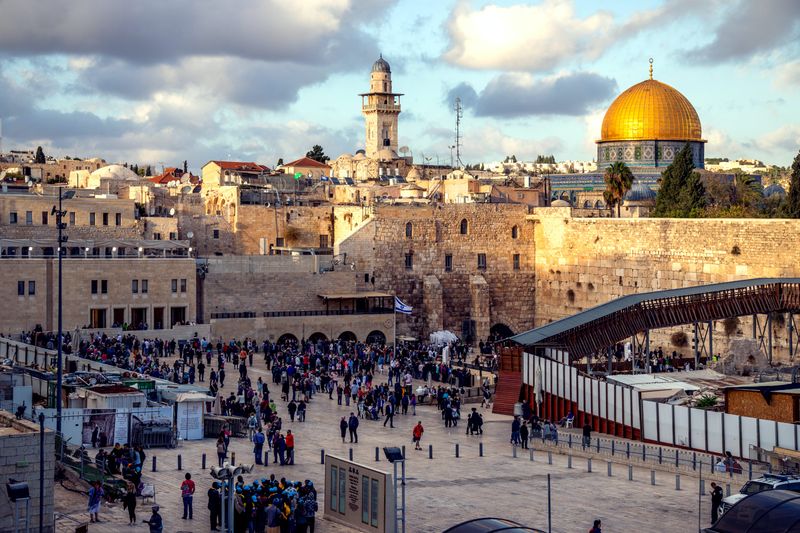Both Israel and Palestine claim ownership of Jerusalem.
The latest explosion of violence is only the most recent in a contested history of more than 100 years. It's a polarizing issue to say the least.
But for people of all opinions, it's worth asking: why is Jerusalem so important to so many people?

Religious Significance
Jerusalem is considered sacred by followers of:
Christianity for its importance in Jesus' life.
Jerusalem is home to the Holy Sepulchre, a site that is believed to be significant to Jesus' death, crucifixion, and resurrection.
Islam for its association with prophets.
The Dome of the Rock is a holy site located in Jerusalem, believed to be the site where Muhammad ascended into heaven and was given the second pillar of Islam.
Judaism considers Jerusalem as its spiritual homeland.
Jerusalem is home to the Temple Mount. Jews believe that in the future, the rebuilt Temple will become the center of worship and instruction.
 Photo by Sander Crombach on Unsplash
Photo by Sander Crombach on UnsplashTribal Politics: Us Vs. Them
Without unpacking thousands of years of history, what we can say is that there are very strong opinions on both sides of the Israeli-Palestinian conflict.
Because this conflict is inter-generational, many people have been born into it. This means many people may grow up with a certain world view that is shared as fact, and they are immediately part of a "side."
Think of it like growing up in a family that loves a certain sports team.
If parents love and cheer for a certain team, it's likely that their kids will grow up as fans. Maybe they'll question the preference or choose their own when they're older, but for many, this family tradition will be taken as fact.
In tribal politics, we inherit the views of our family and community. We may question or change those views as we age, but we may not.
Or even more simply - tribal politics is when we think in terms of us versus them.
Tribal Politics And Our Brains
When we are thinking in terms of "us" versus "them," our brains are falling victims to tribal politics.
When we're operating from a tribal level we are more likely to be emotional, and less likely to be rational.
Add to this the halo and horns effects and confirmation bias, and as humans, we become much more likely to seek out and remember information that supports our existing world view.
The result? We get more polarized and adopt simplistic positions: either pro-Israel or pro-Palestine.
Quiz
What might we be more likely to do when we're operating more from emotion than rationality?
Take Action
Obviously, this 6 minute Byte doesn't have a solution to the Israeli-Palestinian conflict. But in terms of combatting tribal politics, there are some things you can do on a personal level.
Your feedback matters to us.
This Byte helped me better understand the topic.
